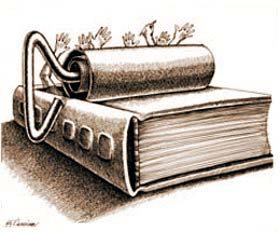
Recently my daughter was married by a Roman Catholic Bishop who was our former pastor and with whom our family has a close relationship. So at the reception I had no problem venting my strong feelings about the NY Archdiocese due to the closing of inner city parochial schools on Staten Island. I had sent all my children to one and my grandchildren were students affected by the closure.
Many of the students were poor children from the Stapleton projects sent there through great personal sacrifice by parents unwilling to send them to the public school with the worst record on the Island. Even my Muslim neighbors sent them to this school for the same reason. I continued venting angrily about our current Archbishop whom I felt was responsible for the closings and reminded the Bishop that parochial schools were established to provide education to the poorest families.
Yet the closings decimated practically all the only options for inner city children to succeed. The Bishop (whom I won't name to preserve his privacy) listened quietly to my rant and then explained exactly what the problem was which made me realize how stupid I'd been for forgetting how things worked here.
When Rudy Giuliani was Mayor, for a very brief time vouchers were given to students to attend private schools. Many of the parents new to our school were unfamiliar with the discipline applied to the students but eventually understood how necessary it was for their educational success.
The 2010 documentary The Lottery followed four inner city families awaiting the decision of the lottery that would allow their child to attend one of the Success Academy Charter schools. These charter schools, ironically, follow the same educational protocol of parochial schools sans the religious instruction. Strict discipline, uniforms, focus on education rather than social engineering yet the cost of education in the private system is less costly than government funding.
When that documentary hit the screens, it prompted billionaires like Bill Gates and Mark Zuckerberg to pour millions into educational institutions. Alas, none of these endowments went to the parochial school system which does more to help students escape the mean streets then the hard-to-enter charter schools.
I have always thought that it might have been a good idea to televise a nationwide telethon so that the millions like me who benefited from the schools could contribute in some small way to keep the schools operating. It worked for MD thanks to Jerry Lewis. Maybe it would help to keep some schools in the worst neighborhoods open.
I was very friendly with the late Edward Cardinal Egan who fought to keep the inner city parochial schools open. He once wrote me a short note asking to imagine what he could do with an 11 million dollar budget the city has to fund his own schools. That budget is much higher today with the same dismal results.
What the Bishop reminded me that evening was that no matter what the archdiocese tried to do about securing vouchers and school choice, the parents in the inner city ended up voting for Democrats who always vetoed potential voucher legislation.
Democrats are more beholden to the teachers' union which opposes vouchers and school choice than they are to students and their families.
The film The Lottery also highlights this opposition from the teachers' unions to charter schools (as they are usually not unionized), and the contest between charter and public schools for building space. School choice also helps all religious academics, be they parochial or yeshivas.
Until the parents of these students recognize that their political choices are what has doomed any chance for education reform, students in the barrios and ghettos will forever be condemned to inferior educational options.
Comment by clicking here.



 Contact The Editor
Contact The Editor
 Articles By This Author
Articles By This Author